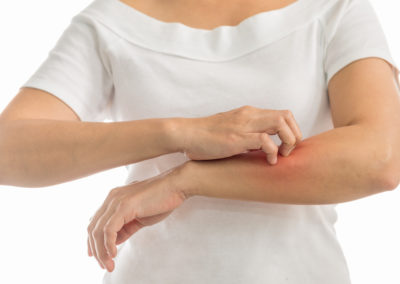Consultant Connect changes the way clinicians interact with colleagues in hospitals and other secondary care services, improves patient care, and reduces unnecessary referrals. In Scotland, three Health Boards are using Consultant Connect for rapid prof-to-prof clinical decisions to support with patient management, reduce unnecessary attendances, and navigate patients to the most appropriate place, the first time.
The conversations between clinicians and specialists, result in between 30% – 60% of patients avoiding an unnecessary hospital appointment.
If you missed our recent webinar on the topic, the article below summarises the case study shared by the speaker panel from NHS Tayside.
- The journey of how prof to prof clinical decisions developed in Tayside, to what the service covers today
Dr Ron Cook, Clinical Director, Ninewells Hospital, NHS Tayside
‘Prof-to-prof started in Tayside just over 15 years ago to provide safe remote discharge. Back then it was used to support junior doctors in our smaller departments when there wasn’t immediately an Emergency Department (ED) senior doctor available on the floor. The junior doctors would call the senior doctor’s phone. Shortly after that, we made the line available to regional ambulance crews for remote clinician decision support, to both help decide where patients in the region should come to between Perth and Ninewells, but also to support access to alternative care – enabling them to determine whether a patient needed an emergency transfer to hospital or not.
It started initially with us just carrying a handset from an old-fashioned landline, but we came across the issue of documentation and recording what the outcome of calls were. Although our ED staff always had a notepad to hand, the use of this, to document calls was pretty unreliable as you can imagine. So, we used mobile phone apps to try and record calls, but then came across further problems with mobile phone reception, calls dropping out and recording of calls. Despite these issues, the line was very well used, and very popular and we got to the point in 2016 that we were sort of looking at 7,000-8,000 calls a month. This made us really realise the value of the prof-to-prof services, whenever we did an audit and looked at the outcomes of the calls, 30% of the ambulance calls resulted in a patient not being immediately brought to an emergency department and accessing care in the community.
At that point, our colleagues in acute medicine had also started a prof-to-prof service and they found that if a referral into acute medicine from the regional GP was answered by a consultant or senior doctor, then 20% could access alternative care.
In 2018, we were taking around 11,000 calls a month, and we realised we needed to address the issues in terms of resources and clinical governance. So, we started our relationship with Consultant Connect. By using Consultant Connect we immediately had the benefits of call recordings, call loggings, and getting the volumes, getting a much more detailed feel of how many calls we were actually taking, where they were coming from (for example, were they coming from GPs or the ambulance service).
Consultant Connect and the use of prof-to-prof clinical decisions really did provide us with a good platform for when a couple of years later COVID hit, and we were able to use that resource to support our COVID activity as well.’
- Impact of COVID/ rapid redesign of front doors/ impact during COVID peak
Dr Ron Cook
‘I don’t think I need to tell anyone here that COVID presented a particular challenge in how to run unscheduled care, and in an emergency department! When it hit, we made an early decision that we thought all COVID activity apart from those patients requiring immediate resuscitation, needed to come through a completely separate entrance from the emergency department, straight into a unit being run by infectious diseases and respiratory medicine and acute medicine. To enable that we needed to give access to the ambulance service, to be able to notify the unit that they were coming in with a COVID patient. Overnight we were able to turn on a dedicated prof-to-prof line to support that activity. Susan was heavily involved in that.’
Susan Bean
‘Covid was such an unknown quantity at the beginning, that being able to provide really quick access to senior clinical decision makers, even just from an advice perspective, for ambulance crews on scene with these patients, and also to primary care out-of-hours was really valuable. We were able to put that in place extremely quickly over the course of an afternoon. As well as clinical advice, prof-to-prof discussions could provide destination support as well. This meant that critically unwell patients would be directed to the Emergency Department and other patients accessed the most appropriate entry point. –This was key to safely managing access to hospital, so that we weren’t holding patients anywhere, and we were minimising footfall in as many parts of the hospital as possible while ensuring access to definitive care as quickly as possible.’
Dr Ron Cook
‘Adding to that, I think it gave the opportunity for COVID patients to either identify that cohort that needed to be straight to resus, have a team waiting for them, a cohort that could go straight into a ward environment, or even have a level two type of machine waiting for their arrival, or the patient who needed to come for assessment in hospital but could potentially be turned around and be assessed in a more COVID ambulatory style setting.
As the COVID year progressed we developed those three streams pretty effectively and kept a lot of that activity away from the emergency department front door and handled it through these dedicated COVID units. We also had a redesign of the urgent care programme in Scotland, launching well into the COVID year around August/September 2020. Those established prof-to-prof lines were brought into our flow navigation centre and used to further support the ambulance service. We’ve seen a 300% increase in ambulance service use of prof-to-prof, and key to that with that huge increase in use the outcomes were sustained.
We still maintained that 30% of calls, patients were able to access care alternatives to that, just coming to hospital. So much so that when we did the figures and looked at the prof-to-prof calls taken, looked at the patients that accessed direct COVID, accessed direct AMU from ambulance service, doing the calculations we’d have seen 15% at least, maybe 20% more traditional unscheduled attendances through our ED front door, with the whole scheduling which redesign of urgent care enabled on top of that, so it made a huge difference to our managing of it.’
- Beyond A&E approach
Susan Bean, Clinical Care Group Manager, Ninewells Hospital, NHS Tayside
‘We’ve expanded on our medical specialties, started with diabetes in Tayside, who are now providing just an in-hours prof-to-prof service. This is not designed to replace an outpatient referral, these are patients who the GP may have considered sending up to the medical assessment, or medical admissions unit, in Ninewells, or in Perth, to be seen there. Via Consultant Connect they are able to access a senior clinical decision maker in that patient’s own specialty where there’s a patient with a chronic condition, and possibly also the supporting specialist nursing team. It’s just enabling them to access as many alternative pathways for patients as possible – for example, a diabetic or a patient with COPD may have had to come up to hospital to be assessed before, actually being able to speak to their own consultant can enable them to have the care they need closer to him (for example, arrange an urgent hot clinic review, changes over the phone to their management plan etc).
It’s all about care as close to home as possible, and whether that is, ambulance service crews being able to speak to our consultants to arrange alternative models of care, or GPs being able to do the same. You have to ask yourself what value you’re adding with an admission.’




